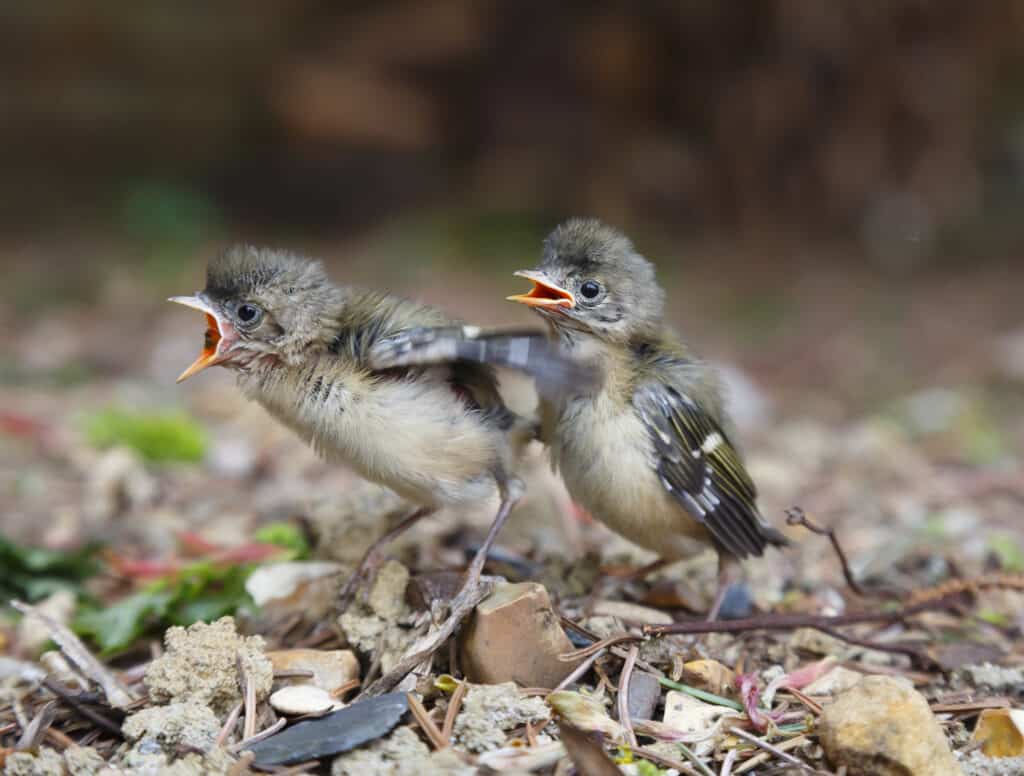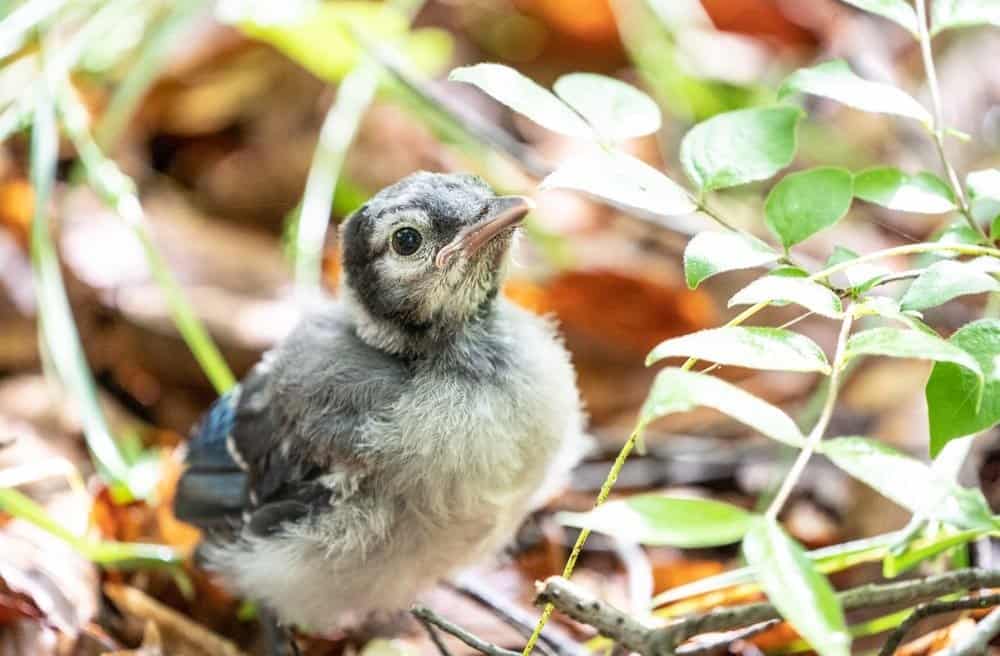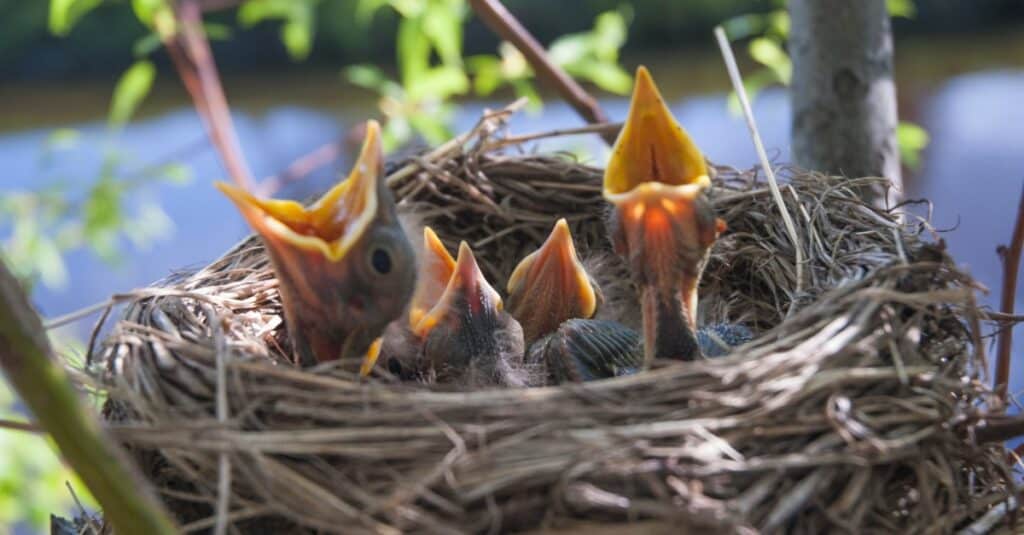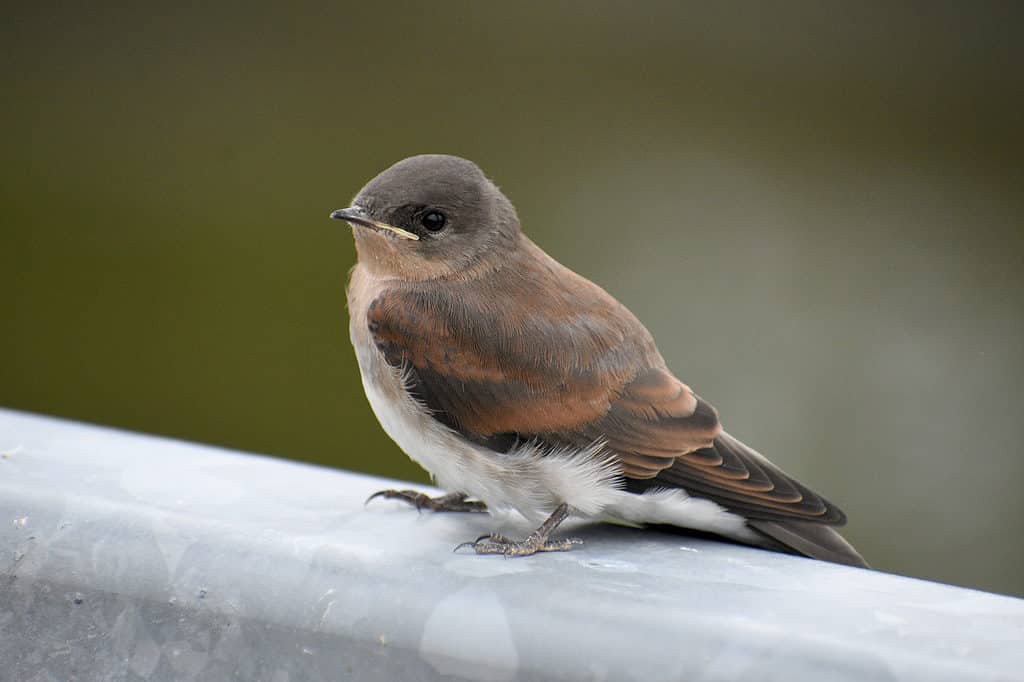The fledgling period is defined as the time when the young abandon the nest (during a stage of development) under natural conditions.
Age of Fledgling Meaning
The term “age of fledgling” refers to the period in a bird’s (or flying animal’s) life after hatching but before flying. Fledglings have feathers and wing muscles developed for flight. They leave the nest after the nestling period but still rely on their parents for care and feeding. The age at which a bird fledges the nest varies by species. Birds in this stage of life are vulnerable as they can’t yet fly. But their survival rate actually increases once they leave the nest.
What is Considered a Fledgling? What is the Fledgling Period?
Adorning its first coat of feathers, a fledgling can move around the world on its own, for the most part. These young birds begin gripping branches and exploring their environment without their parents, gearing up to fly off and live their adult lives. They typically have soft, loose feathers and do not resemble their parents.
The fledgling period is defined as the time when the young abandon the nest (during a stage of development) under natural conditions.

Goldcrests lay between 9 and 12 eggs. Their chicks fledge between 17 to 22 days after hatching. The age of fledgling differs drastically between species.
©Paul Maguire/Shutterstock.com
When Do Birds Fledge The Nest?
“Age of fledgling” specifically refers to the age at which a species leaves the nest. However, this can differ drastically between species.
The average age of a fledgling is between 12 and 21 days old (counted from the day they hatch). Bluebird babies will fledge the nest from 16 to 21 days old, northern cardinals fledge from seven to 13 days, and house sparrows fledge from 15 to 17 days old.
Altricial birds are those born in immature and helpless conditions. These species spend more time in the nest before leaving, often having a long fledgling period, as well. For instance, songbirds are altricial organisms. Crows have an average age of fledgling around 40 days old.
Precocial birds can move and fend for themselves soon after hatching. Birds in this category include chickens, ducks, rheas, and many more. The ancient murrelet fledges the nest just two days after hatching, running from its nest to the ocean.
Pronunciation
How do you pronounce fledgling?
FLEHJ-leeng
Fledgling Bird Identification: How Do You Tell if a Baby Bird is a Fledgling?

Fledglings are scruffy-looking with drab coloring and large beaks.
©Amy Lutz/Shutterstock.com
Here are a few ways you can identify a fledgling:
- They will look scruffy, often featuring different colors and characteristics from their parents.
- Their beaks will seem large in proportion to their bodies. They will also have short tails.
- The feathers will be disheveled and may have a drab color to conceal them from predators.
- They will most likely be scurrying around on the ground, getting used to working their little bird legs.
Nestling Vs Fledgling

Nestlings are completely dependent on their parents. They don’t have many feathers and they typically spend their days with their mouths open, begging for food.
©iStock.com/markhonosvitaly
Baby birds can be either nestlings or fledglings. Nestlings are newly-hatched birds completely dependent on their parents for survival. They don’t have many feathers, and they will still be in the nest, typically with their mouths open, begging for food.
Fledglings are slightly older, with more feathers and the ability to move around. They often fall out of the nest and stay on the ground or low shrubs, waiting for their parents to feed them. Birds in this stage have what they need to fly but don’t yet know how.
Can Baby Birds Survive After Falling Out of Nest?
The answer to this question depends on the bird’s developmental stage. Nestlings that fall out of the nest will most likely die if they are not renested and cared for. But fledglings are meant to be out of their nests, learning how to find food and water. Most baby birds you find on the ground will be fledglings. And while they may look frail and tiny, it’s in the bird’s best interest to be left alone. Don’t worry; its parents are still taking care of it.
If you suspect a nestling has fallen out of its nest, you can gently put it back or call a licensed wildlife rehabilitator. You can also call a rehabilitator if a fledgling is injured and needs to be cared for before being released back into the wild. Do not take injured birds home. It is illegal in many states and hurts the bird’s chances of surviving on its own.

Within weeks after fledging the nest, birds can survive on their own, and their odds continue to improve as they get older.
©Bird_Nerd45/Shutterstock.com
When Can a Fledgling Survive on its Own?
Fledglings are often like toddlers testing out their new legs, hopping, and scurrying about. They are learning about their new world and how to survive in it. Their parents teach them valuable lessons during this phase of life, such as how to find food and water and avoid predators. Fledglings typically spend one to two weeks on the ground as they test out their wings by fluttering around in low bushes. Within weeks after fledging the nest, birds can survive on their own, and their odds continue to improve as they get older.



